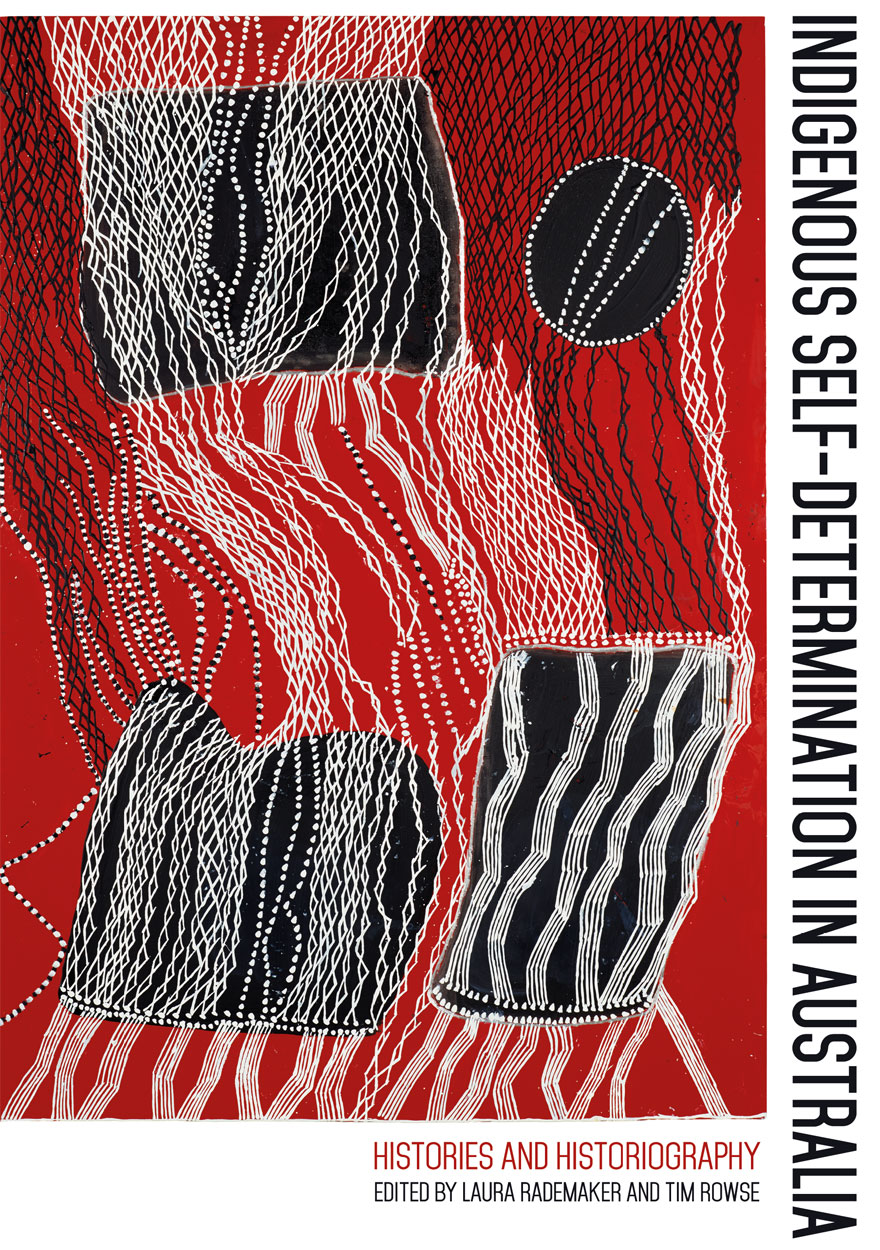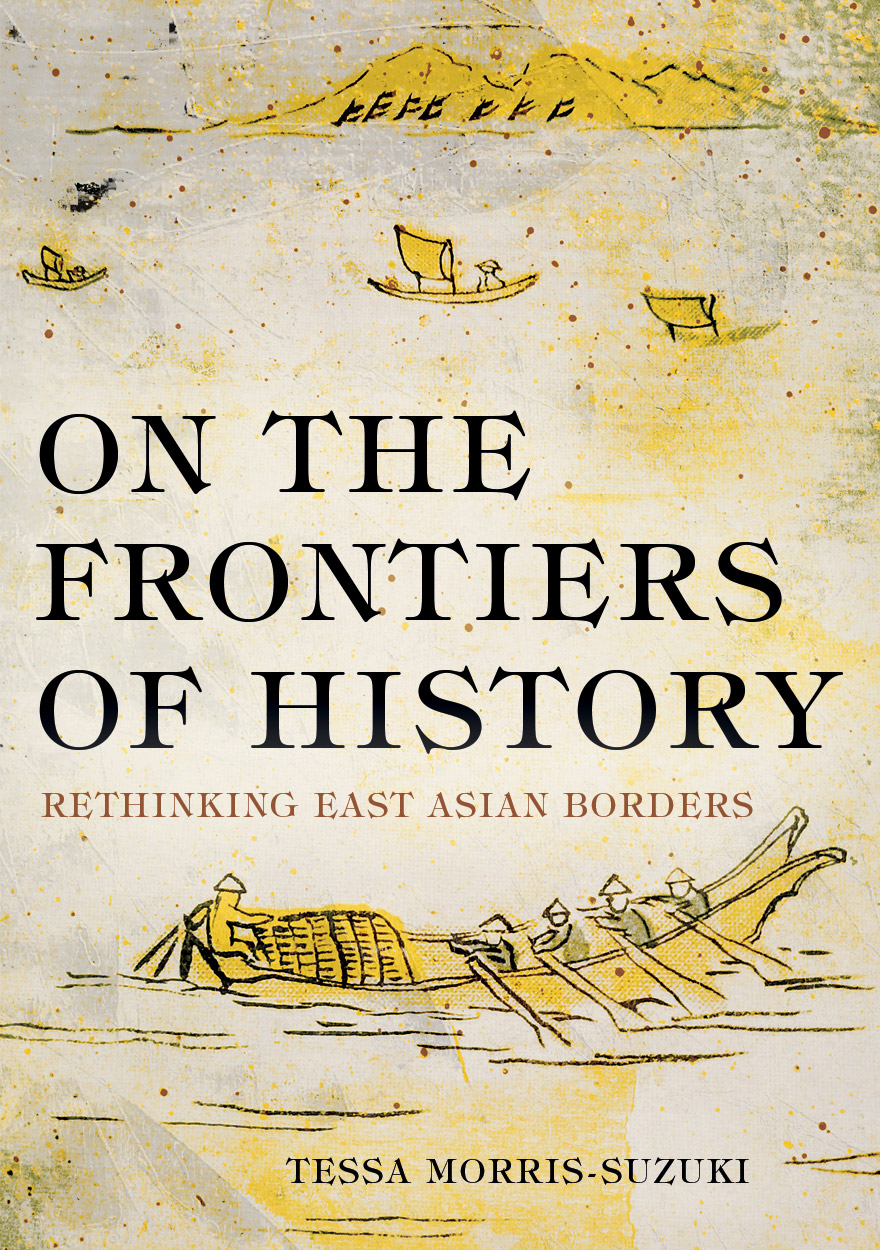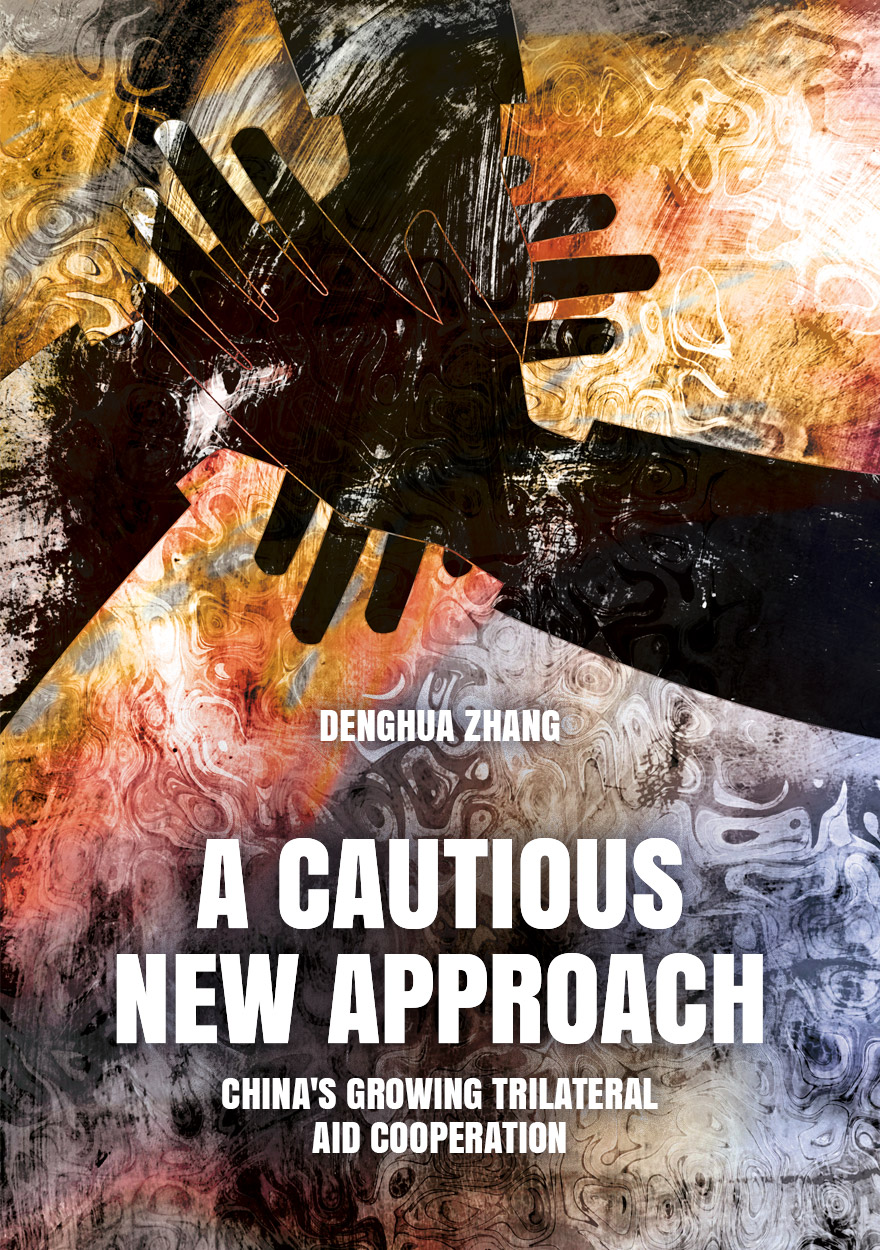Search titles
Displaying results 41 to 50 of 358.

Made in China Journal: Volume 5, Issue 2, 2020 »
Edited by: Ivan Franceschini, Nicholas Loubere
Publication date: October 2020
The most Gothic description of Capital is also the most accurate. Capital is an abstract parasite, an insatiable vampire and zombie-maker; but the living flesh it converts into dead labor is ours, and the zombies it makes are us. There is a sense in which it simply is the case that the political elite are our servants; the miserable service they provide for us is to launder our libidos, to obligingly re-present for us our disavowed desires as if they had nothing to do with us.
– Mark Fisher, Capitalist Realism (2009)
Ghostly analogies drawn from the gothic imaginary are common in the Marxist canon, with the most famous case in point being the incipit of Marx and Engels’s Manifesto of the Communist Party, where readers are told that ‘the spectre of communism’ is haunting Europe. Far from being considered curious aberrations, these preternatural metaphors have given rise to a whole literature on spectral capitalism that spans to our present stage of late capitalism. In the 1980s, Aihwa Ong made waves with her study of spirit possessions on the shop floors of modern factories in Malaysia, in which she argued that these spectres represented a form of resistance by workers otherwise powerless in the face of capital. In another instance from the 1990s, Jean and John Comaroff introduced the idea of ‘occult economies’ to make sense of the wave of episodes in which real or imagined magical means were deployed in pursuit of material gains that occurred in South Africa after the end of apartheid. While both conceptualisations received a fair share of criticism—not least for presenting the ghosts of capitalism as dreams and the anthropologist as the psychoanalyst instead of dealing with the proper social and historical context of these phenomena—this issue of the Made in China Journal cuts the Gordian knot by focusing on how individuals in China and other contexts in Asia live and interact with the supernatural. In some cases, ghosts, fortune-tellers, shamans, sorcerers, zombies, corpse brides and aliens merely assist people to get by and cope with the difficulties they face in their daily lives; in others, these beings play subversive roles, undermining the rules that underpin contemporary society. In both cases, they challenge the status quo, hence the title ‘spectral revolutions’.
Download for free
Not available for purchase

Collaboration for Impact »
Lessons from the Field
Authored by: John Butcher, David Gilchrist
Publication date: September 2020
Collaboration is often seen as a palliative for the many wicked problems challenging our communities. These problems affect some of the most vulnerable and unempowered people in our community. They also carry significant implications for policy processes, programs of service and, ultimately, the budgets and resourcing of national and sub-national governments.
The road to collaboration is paved with good intentions. But, as John Butcher and David Gilchrist reveal, ‘good intentions’ are not enough to ensure well-designed, effective and sustainable collaborative action. Contemporary policy-makers and policy practitioners agree that ‘wicked’ problems in public policy require collaborative approaches, especially when those problems straddle sectoral, institutional, organisational and jurisdictional boundaries.
The authors set out to uncover the core ingredients of good collaboration practice by talking directly to the very people that are engaged in collaborative action. This book applies the insights drawn from conversations with those engaged in collaborations for social purpose—including chief executives, senior managers and frontline workers—to the collaboration challenge. Backed up by an extensive review of the collaboration literature, Butcher and Gilchrist translate their observations into concrete guidance for collaborative practice. The unique value in this book is the authors’ combination of scholarly work with practical suggestions for current and prospective collaborators.

Indigenous Self-Determination in Australia »
Histories and Historiography
Edited by: Laura Rademaker, Tim Rowse
Publication date: September 2020
Histories of the colonisation of Australia have recognised distinct periods or eras in the colonial relationship: ‘protection’ and ‘assimilation’. It is widely understood that, in 1973, the Whitlam Government initiated a new policy era: ‘self-determination’. Yet, the defining features of this era, as well as how, why and when it ended, are far from clear. In this collection we ask: how shall we write the history of self-determination? How should we bring together, in the one narrative, innovations in public policy and Aboriginal and Torres Strait Islander initiatives? How (dis)continuous has ‘self-determination’ been with ‘assimilation’ or with what came after? Among the contributions to this book there are different views about whether Australia is still practising ‘self-determination’ and even whether it ever did or could.
This book covers domains of government policy and Indigenous agency including local government, education, land rights, the outstation movement, international law, foreign policy, capital programs, health, public administration, mission policies and the policing of identity. Each of the contributors is a specialist in his/her topic. Few of the contributors would call themselves ‘historians’, but each has met the challenge to consider Australia’s recent past as an era animated by ideas and practices of Indigenous self-determination.

On the Frontiers of History »
Rethinking East Asian Borders
Authored by: Tessa Morris-Suzuki
Publication date: August 2020
Why is it that we so readily accept the boundary lines drawn around nations or around regions like ‘Asia’ as though they were natural and self-evident, when in fact they are so mutable and often so very arbitrary? What happens to people not only when the borders they seek to cross become heavily guarded, but also when new borders are drawn straight through the middle of their lives? The essays in this book address these questions by starting from small places on the borderlands of East Asia and looking outwards from the small towards the large, asking what these ‘minor pasts’ tell us about the grand narratives of history. In the process, it takes the reader on a journey from Renaissance European visions of ‘Tartary’, through nineteenth-century racial theorising, imperial cartography and indigenous experiences of modernity, to contemporary debates about Big History in an age of environmental crisis.

Achieving Inclusive Growth in the Asia Pacific »
Edited by: Adam Triggs, Shujiro Urata
Publication date: August 2020
The world’s developed economies are experiencing a sharp backlash against globalisation, and it appears to be contagious. Will Asia catch it next? Asia has seen spectacular growth in recent decades. It has benefited substantially from global trade, finance, openness and the rules-based international order. But much of the growth Asia has enjoyed has not been shared. It has not been inclusive growth. Inequality in Asia is among the highest in the world. The richest man in Vietnam now earns more in a single day than the poorest person does in a decade. Asia has far to go in making its societies more inclusive to women, ethnic minorities and the LGBT community. How can Asia reduce inequality? What are the forces that determine whether growth in the Asia Pacific is inclusive or not? And what can be done to make Asia’s growth more inclusive in the future? This book brings together the region’s leading thinkers to explore how to change Asia’s trajectory, before it is too late.
The Pacific Trade and Development (PAFTAD) conference series has been at the forefront of analysing challenges facing the economies of East Asia and the Pacific since its first meeting in Tokyo in January 1968.

A Populist Exception? »
The 2017 New Zealand General Election
Edited by: Jack Vowles, Jennifer Curtin
Publication date: August 2020
The ‘spectre of populism’ might be an apt description for what is happening in different parts of the world, but does it apply to New Zealand? Immediately after New Zealand’s 2017 general election, populist party New Zealand First gained a pivotal role in a coalition with the Labour Party, leading some international observers to suggest it represented a populist capture of the government. The leader of New Zealand First, Winston Peters, justified his support for Labour as necessary to allow capitalism to ‘regain … its human face’. The new prime minister, Jacinda Ardern, spoke of a kinder, inclusive politics.
This book draws on the 2017 New Zealand Election Study to uncover New Zealanders’ political attitudes and preferences post-election. Its authors ask: is New Zealand now A Populist Exception? Through detailed empirical analyses of how populism and authoritarianism affected vote choice, opinions about immigration, satisfaction with democracy and the relevance of gender and indigeneity to these issues, this book finds that New Zealand politics today does not reflect the international trend toward ideological polarisation and electoral volatility. The authors argue that inclusive forms of populism can be pluralist if a leader’s rhetorical approach recognises ‘the people’ as diverse and encompassing. A Populist Exception? concludes that although populism has long been a strong current in New Zealand history, contemporary New Zealand exhibits a moderate form of populism, with liberal and pluralist values in balance with a strong commitment to majoritarian democracy.

Designing Governance Structures for Performance and Accountability »
Developments in Australia and Greater China
Publication date: July 2020
Designing Governance Structures for Performance and Accountability discusses how formal and informal governance structures in Australia, the People’s Republic of China (PRC) and Taiwan may be designed to promote performance and to ensure accountability.
The book presents a selection of papers developed from the Greater China Australia Dialogue on Public Administration’s seventh workshop held in June 2017 hosted by City University of Hong Kong.
Insights are provided on both current developments in the different contexts of the three jurisdictions examined, and on broader institutional and organisational theories. Chapters cover theories of organisational forms and functions in public administration, the ‘core’ agency structures used in the different jurisdictions, the structures used to deliver public services (including non-government organisational arrangements) and other ‘non-core’ agency structures such as government business enterprises, regulatory organisations and ‘integrity’ organisations. A particular emphasis is placed on the institutional arrangements the executive arm of government uses for advising on and implementing government policies and programs. Although the book explores arrangements and developments within very different political governance systems, the purposes of the structures are similar: to promote performance and accountability.
This book is a companion volume to Value for Money: Budget and Financial Management Reform in the People’s Republic of China, Taiwan and Australia (ANU Press, 2018).

Made in China Journal: Volume 5, Issue 1, 2020 »
Publication date: May 2020
‘Art must not be concentrated in dead shrines called museums. It must be spread everywhere—on the streets, in the trams, factories, workshops, and in the workers’ homes.’
— Vladimir Mayakovsky, 1918
With these words, the great Soviet poet addressed the key question of how to bring art to people and people to art in a new world in which old aristocracies, elites, and their aesthetic privileges were fading away. In the words of art theorist Boris Groys, ‘the world promised by the leaders of the October Revolution was not merely supposed to be a more just one or one that would provide greater economic security, but it was also and in perhaps in even greater measure meant to be beautiful.’ Walking in these steps, the Chinese Revolution was a project of further experimentation and creation in the realm of the relationship between art and the people. The world it created was at once utopian and disfigured, radiant and desolate. While today that world is no longer, the questions it raised about the relationship between the working class, artistic production, and aesthetic appreciation remain with us. This issue of the Made in China Journal offers a collection of essays that examine the ‘work of arts’, intended as the extension of art beyond the confines of the museum and into the spaces of ordinary life and production.
Download for free
Not available for purchase

China Dreams »
Publication date: April 2020
The year 2019 marked a number of significant anniversaries for the People’s Republic of China (PRC), each representing different ‘Chinese dreams’. There was the centennial of the May Fourth Movement — a dream of patriotism and cultural renewal. The PRC celebrated its seventieth anniversary — a dream of revolution and national strength. It was also thirty years since the student-led Protest Movement of 1989 — dreams of democracy and free expression crushed by government dreams of unity and stability. Many of these ‘dreams’ recurred in new guises in 2019. President Xi Jinping tightened his grip on power at home while calling for all citizens to ‘defend China’s honour abroad’. Escalating violence in Hong Kong, the ongoing suppression of Uyghurs in Xinjiang, and deteriorating Sino-US relations dominated the headlines. Alongside stories about China’s advances in artificial intelligence and geneticially modified babies and its ambitions in the Antarctic and outer space, these issues fuelled discussion about what Xi’s own ‘China Dream’ of national rejuvenation means for Chinese citizens and the rest of the world.
The China Story Yearbook: China Dreams reflects on these issues and more. It surveys the dreams, illusions, aspirations, and nightmares that coexisted (and clashed) in 2019 in China and beyond. As ever, we take a cross-disciplinary perspective that recognises the inextricable links between economy, politics, culture, history, language, and society. The Yearbook, with its accessible analysis of the main events and trends of the year, is an essential tool for understanding China’s growing power and influence around the world.

A Cautious New Approach »
China's Growing Trilateral Aid Cooperation
Authored by: Denghua Zhang
Publication date: March 2020
‘As a student of international relations and a former diplomat, Zhang brings the insights of a practitioner and the eye of scholar to explain why Chinese actors choose to engage in aid cooperation with traditional donors in the Asia-Pacific. This book is among the first to take a holistic approach to understanding the motivations of the many agencies involved in China’s aid program, and it will challenge the expectations of many readers.’
—Dr Graeme Smith, The Australian National University
‘This book breaks new ground by examining a little-known dimension of China’s foreign policy: trilateral aid cooperation. Denghua Zhang sets this highly original analysis in the context of the new assertiveness of Chinese foreign policy under Xi Jinping, the China International Development Cooperation Agency established in 2018, and the Belt and Road Initiative, which now serves as the framework for Chinese overseas aid and engagement. At a time when the debate in the West about the rise of China has intensified, not always knowledgeably, this book fills an important gap in our understanding of China in Southeast Asia and the Pacific.’
—Dr Stewart Firth, The Australian National University
‘This thoroughly researched work examines trilateral cooperation as a new and interesting aspect of China’s growing international aid program, and as a window into the changing nature of that program as well as the wider foreign policy in which it is embedded. The broad themes and topics discussed are clearly significant, ultimately touching on one of the most important international issues of our time, the implications of the rise of China for a long-established Western-dominated international system.’
—Prof. Terence Wesley-Smith, University of Hawai‘i



